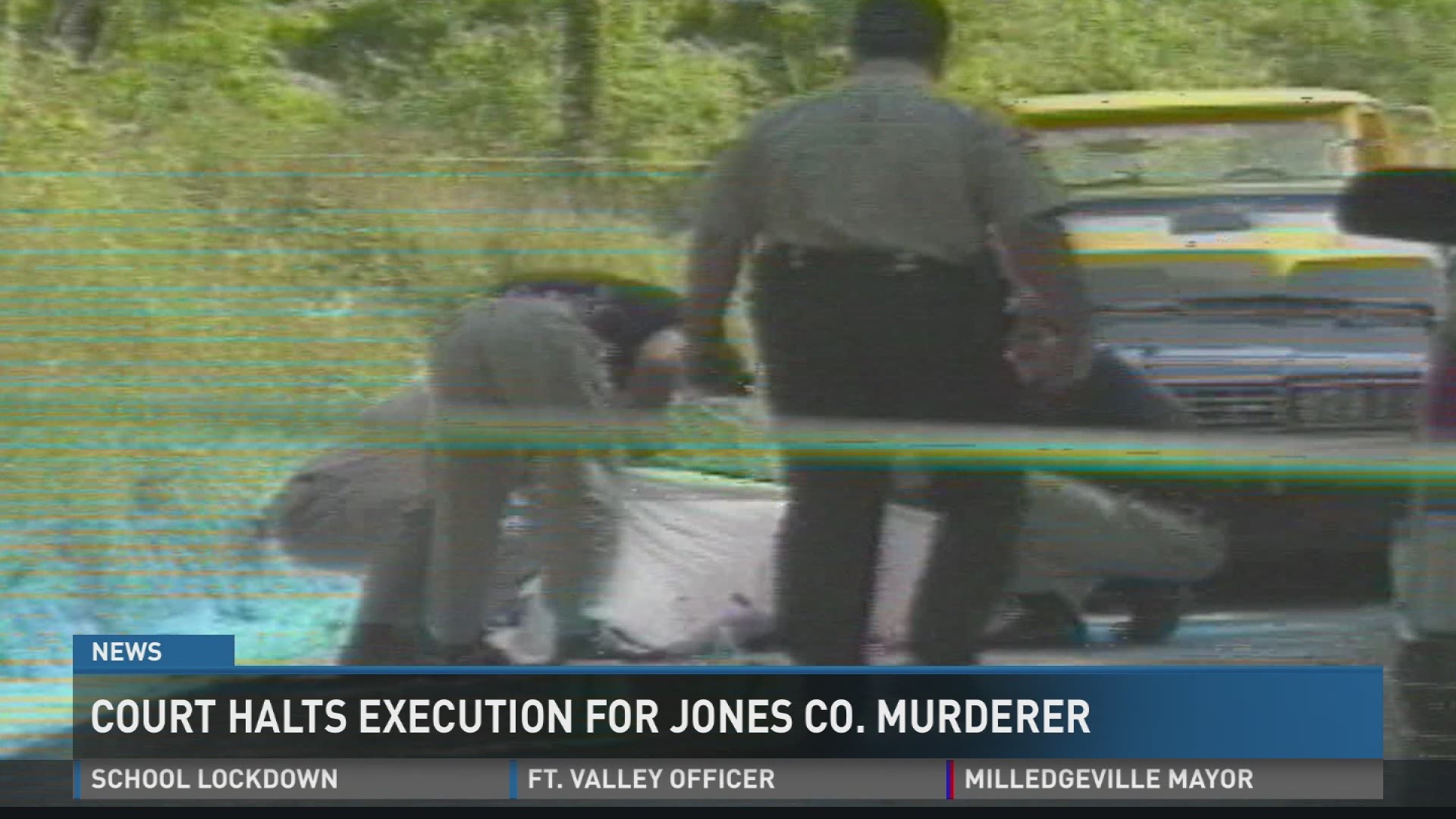The U.S. Supreme Court has ruled in favor of a Jones County convicted killer on Georgia's Death Row who argued that a racist juror helped convict him.
The court today sent the death-penalty case against Keith Tharpe back to a federal appeals court.
In September, Tharpe had eaten his last meal, recorded his final statement and declined a sedative Tuesday afternoon in what would've been the final hours of his life. Then the Supreme Court granted a stay of execution while they reviewed his appeal.
Tharpe's lawyers argued that "profoundly racist" juror who "wondered if black people even have souls" influenced the jury that gave him the death penalty in 1991.
Tharpe, now 59, was sentenced to death in 1991 for the malice murder of Jacquelin Freeman and the kidnapping of his estranged wife.
The document describes Gattie's "free and unabashed use of the racial slur 'n-----' to describe Mr. Tharpe and his admission that he voted to impose the death penalty because Mr. Tharpe was a 'n-----.'
In 1998, Tharpe's legal team interviewed Gattie, who signed a sworn statement confirming his comments.
In that statement, he describes the victims and their family as "good black folks."
"If they had been the type Tharpe is, then picking between life and death wouldn't have mattered so much. My feeling is, what would be the difference," Gattie said, according to his statement.
He continued, "After studying the Bible, I have wondered if black people even have souls. Integration started in Genesis. I think they are wrong."
Gattie's statements don't change the facts of Tharpe's guilt, his lawyers argue, but they show that he did not get a "fair and impartial" jury to consider his sentence.
The federal 11th Circuit Court of Appeals ruled that Tharpe could not appeal his sentence, because there was no proof that Gattie's bias affected the sentence.
The Supreme Court Monday said the 11th Court was wrong and should reconsider Gattie's appeal.
No hearing date has been set for the case.
Previous Georgia court rulings held that jurors' statements after a trial can't be considered in appeals, Tharpe's lawyers say.
But in March, the U.S. Supreme Court said state and local courts should consider statements of "overt racial bias."
During the interview, Gattie used the same racial epithet to describe other people and said members of one victim's family thanked him "for sending that n----- to the chair."
His lawyers write, "That a man who brashly used the term 'n-----' to describe Mr. Tharpe and other African American was permitted to live or die raises serious questions as to the fairness of the proceeding..."

